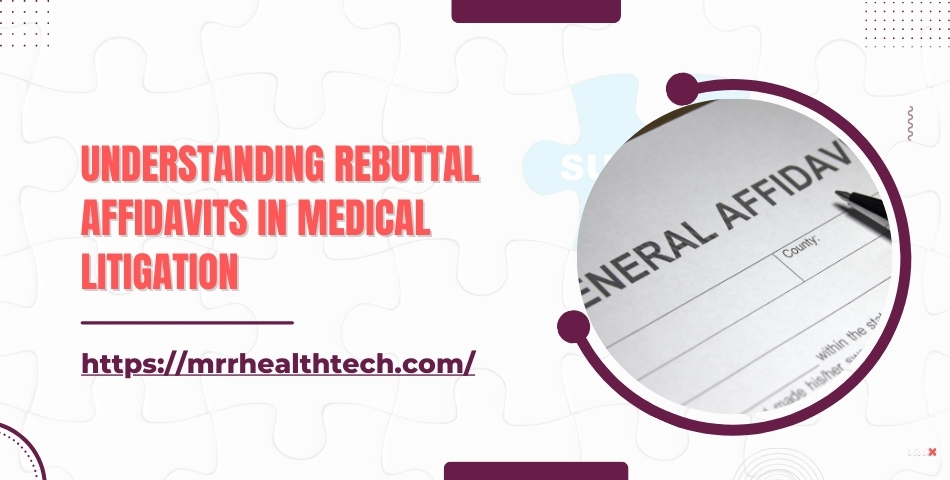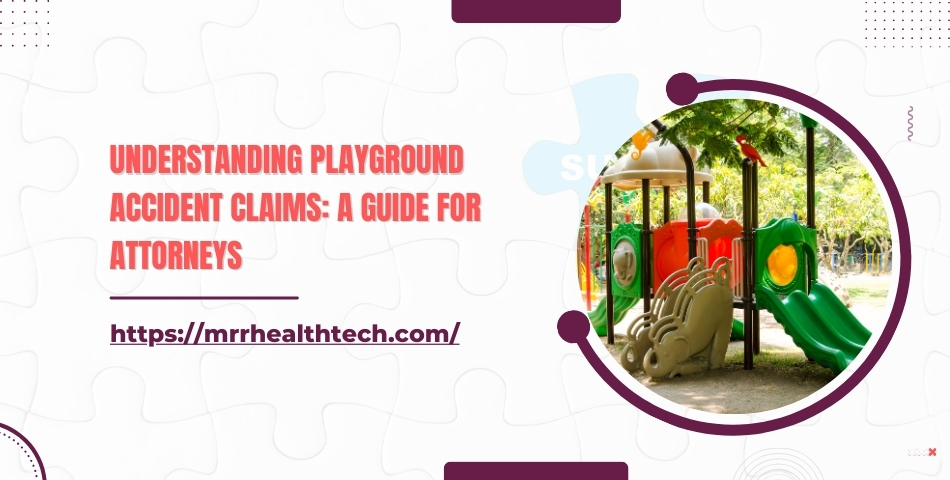
Rebuttal affidavits are important legal documents that can determine the outcome of a medical malpractice case. These legal documents exist to strengthen an argument and counter evidence. This article covers what rebuttal affidavits is, their importance in medical litigation, and how medical record review firms help lawyers use them effectively.
What is a Rebuttal Affidavit?
Definition and Purpose
A rebuttal affidavit is a sworn statement made by a witness or expert that counters or refutes the claims made in an opposing party’s affidavit. It is typically used to challenge the credibility of the opposing evidence, clarify misunderstandings, or provide additional context that supports the rebutting party’s position.
Key Characteristics of Rebuttal Affidavits
- Sworn Testimony: Explanatory rebutters must be signed under oath, affirming their content and construct.
- Narrow Focus: A rebuttal explanatory affidavit should directly answer to and target claims that have been made by the opposing affidavit.
- Medical Expert: Many times, the opposing counsel will prepare a rebuttal affidavit taken from a medical expert.
The Role of Rebuttal Affidavits in Medical Litigation
Why Are They Important?
Rebuttal affidavits are essential in medical litigation for several reasons:
- Strengthening the Case: Affidavits provide a means to refute evidence which, if allowed, could be harmful to the case of the party litigating.
- Clarification of Misunderstandings: misinterpret the medical records and conclusions of the experts, and the affidavits are geared to set the records straight.
- Enhancing Credibility: The party testifying is usually regarded as more credible, particularly when a professional witness supports the claims made in the rebuttal affidavit.
Common Scenarios for Use
- Challenging Expert Opinions: When an opponent introduces expert testimony which is prejudicial to your case, an affidavit in rebuttal can reverse this opinion.
- Addressing Inaccuracies of Medical Documents: If the opponent “interprets” the medical documents in a way that is not correct, an affidavit can be drawn to explain what the proper interpretation is.
- Countering Allegations: In a world where claims are made without adequate facts, rebuttal affidavits can produce findings which negate the aggressor’s actions.
How to Prepare a Rebuttal Affidavit
Step-by-Step Guide to Writing a Rebuttal Affidavit
- Examine The Other Side’s Affidavit: One should carefully go through what has been stated in the opposing affidavit. This helps in determining all issues that require rebuttal.
- Collect Evidence: Gather useful medical records, expert opinions, and other documents that aid in boosting your anti-claim.
- Draft the Affidavit: Write the rebuttal affidavit ensuring that it is succinct and addresses from the core every opposing assertion.
- Include Expert Testimonies: Where applicable, tackle statements from medical professionals to help argue your case.
- Sign and have it Notarized: Sign the affidavit after swearing to tell the truth and have it notarized to comply with the law.
Best Practices for Effective Rebuttal Affidavits
- Be on the Mark: Concentrate on points in the affidavit that are being opposed and do not state vague issues.
- Use Straightforward Language: Do not use terminology that could confuse the person reading the affidavit especially if he comes from a non-medical background.
- Use Appropriate Language: Deliver the information in a civil manner and refrain from using inflammatory words.
The Impact of Medical Record Review on Rebuttal Affidavits
Why Medical Record Review Is Important
Conducting medical record reviews is critical when drafting rebuttal affidavits. Such reviews reveal in detail the medical background and treatment of the patient, enabling the attorneys to know what issues must be tackled in the rebuttal.
Case Studies
Case Study 1: Medical Malpractice Claim
Overview of the Case: A certain patient sued a surgeon on the grounds that he or she was negligent while performing a surgical procedure.
Challenges:
- The other side of the argument had an expert’s affidavit in the fence stating negligence on the part of the axe man, but there was so much proof that the surgeon had adhered to the lipid standard of care dictated for his profession.
Solutions:
- A rebuttal affidavit was prepared by a medical expert who provided evidence of negligence, highlighting deviations from accepted medical practices.
- The medical record review revealed critical details that contradicted the opposing expert’s claims.
Compensation: The argument buy was settled in the patient’s favor thus the plaintiff got paid.
Case Study 2: Personal Injury Litigation
Overview of the Case: An automobile accident resulted in an injury claim; the defendant arguing the plaintiff’s condition had always existed and so pre-dated the accident.
Challenges:
- The defense presented an affidavit from a medical expert asserting that the plaintiff’s injuries were not caused by the accident.
Solutions:
- A countering affidavit was prepared along with the statement of another expert who was consulted and reviewed the claimant’s file and was able to establish a clear relationship between the accident and the injury claimed.
- The medical examination and test of the records focused on the other party’s contention and provided greater strength to the position of the plaintiff.
Compensation: The jury ruled in favor of the plaintiff, awarding significant damages for medical expenses and pain and suffering.
Conclusion
Rebuttal affidavits are an essential weapon in medical related legal disputes as they enable legal representatives to challenge the presented evidence with authority. Knowing how to prepare these documents and their importance improves a case. Medical record review companies assistance in this and offer great input and good review which make rebuttal affidavits great. The trend in the physician’s legal dispute changes and if one wants to succeed in medical litigation controversy, knowing the trend and utilizing specialists is very important.













